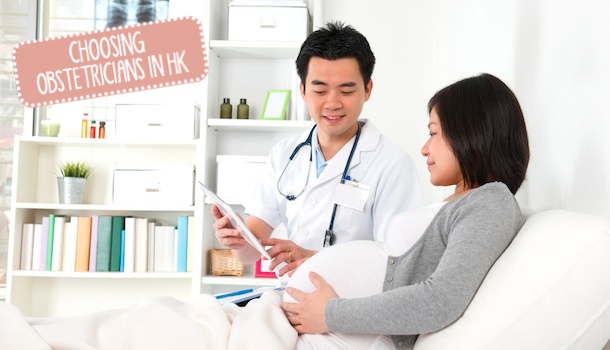
The Hong Kong health system is less transparent than the UK, the US, Australia and Europe. As with most decisions, objective reliable information from diverse sources is crucial before making a properly informed choice. Keep working at it until you feel completely comfortable. These are some of the things I would want to know before I chose my obstetrician:
- Most obstetricians will audit both their outcomes and their intervention rates and should, if asked, be able to provide their data to patients.
- For this kind of data to be meaningful, it should be large enough (a minimum of 1000 deliveries) – this reduces the chance of good or bad outcomes being related to chance, or a run of high-risk patients skewing the data. The data should be continuous and recent i.e. data for 2013 should be available by March 2014. Some obstetricians may allow their midwives or nurses to provide prospective patients with their statistics, particularly if the patient is trying to achieve a particular type of delivery, i.e. vaginal delivery of twins, or VBAC.
- Assess your health background. If you suffer from chronic illnesses or believe you have a high-risk pregnancy, ask about the doctor’s experience with caring for patients with similar health profiles. If you’ve previously had a C-section and are considering a vaginal birth, you may want to get the green light from your doc and hospital. Again, ensuring the doctor has a large sample size in dealing with issues similar to yours will help keep you at ease.
- Before you choose your OB-GYN, first gather what in your pregnancy matters most to you. If you have a very clear idea about how you want to give birth, tell your obstetrician. Ask the difficult questions, and if you feel shy about asking them, take a friend, husband or someone medically qualified to ask them for you. If you are keen to have a normal delivery, you will have the best chance with an obstetrician who has a lower C-Section rate – less than 40% if possible. Also ask about their emergency C-section rates – these should ideally be less than 15%.
- Normal deliveries are unpredictable and can occur at any time of the day or night. Unlike the UK, the US, Australia or Europe, most Hong Kong private hospitals do not have 24 hour resident paediatricians on site (this includes the Matilda hospital). Check how far away your obstetrician will allow his or her paediatrician to be when you are in labour, so that you are assured that there will be someone to look after your baby should an emergency delivery be required.
- Ask your obstetrician whom they use as an anaesthetist. An obstetrician who is meticulous about their work will normally work closely with one anaesthetist who is experienced in obstetric anaesthesia and has a track record of reliability. Do your due diligence on the anaesthetist – these days a failed epidural or a Caesarean under general anaesthetic should be a rare event.
- Look at the whole team – an obstetrician needs support staff to achieve good outcomes and low intervention rates (the holy grail of good obstetric practice). Midwives, nurses and receptionists all play their part in ensuring great care.
- Getting a feel for what others have to say regarding matters most important to you will significantly help you narrow down your search. Ask friends, acquaintances and groups; try to speak to at least 10 patients who have been delivered by any obstetrician you are seriously considering. Check outcomes – did they get the delivery they wanted? Did they recover well? Did their stitches heal? Was their baby born in good condition? Click here to access the Hong Kong Medical Association doctor directory, which lets you refine your search based on type of practice and specialty.
- You should get clear (preferably written) instructions about what to do in an emergency; how to contact the hospital, the obstetrician and what to do if they are unavailable. No one can be available 24/7, 365 days a year. It is easier if the obstetrician is in a partnership, shares the same vision and has a similar track record as regards safety and intervention.
- Check that your obstetrician delivers at a hospital you are happy with.
- If you are rhesus negative, check the hospital has rhesus negative blood continually available in its own blood bank. Rhesus negative blood is rare in ethnic Chinese people – less than 0.5% – but relatively common in Caucasians, at around 15%. Some hospitals decide not to keep rhesus negative blood for emergencies and it can take up to 2 hours to get it from the Red Cross in Kowloon.
- Fees should be transparent with no hidden charges. Does your insurance policy cover the fees?
- If you feel you cannot afford private care or would rather spend your money on something else – consider your options.
- Older first-time mums with very specific ideas about birth may find the government system is neither flexible nor reassuring enough. Related experiences vary considerably from excellent to disastrous; usually related to communication and cultural misunderstanding. Consider delivering in your home country: Australia, the UK and Europe often provide free or cheaper care.
- Credentials and experience aside, comfort level is key. Whether it be that your doc speaks your preferred language, takes the time to answer all of your questions, or has a generally calm demeanor, finding qualities that make you feel comfortable will be extremely beneficial for the later stages of your pregnancy and beyond.
Ultimately, having so many factors to consider in such a short amount of time means prioritising what is most important to you. Remember that what may work for a friend may not work for you. As with everything in Hong Kong, a little research goes a long way.
 View All
View All











 View All
View All





 View All
View All


 View All
View All













